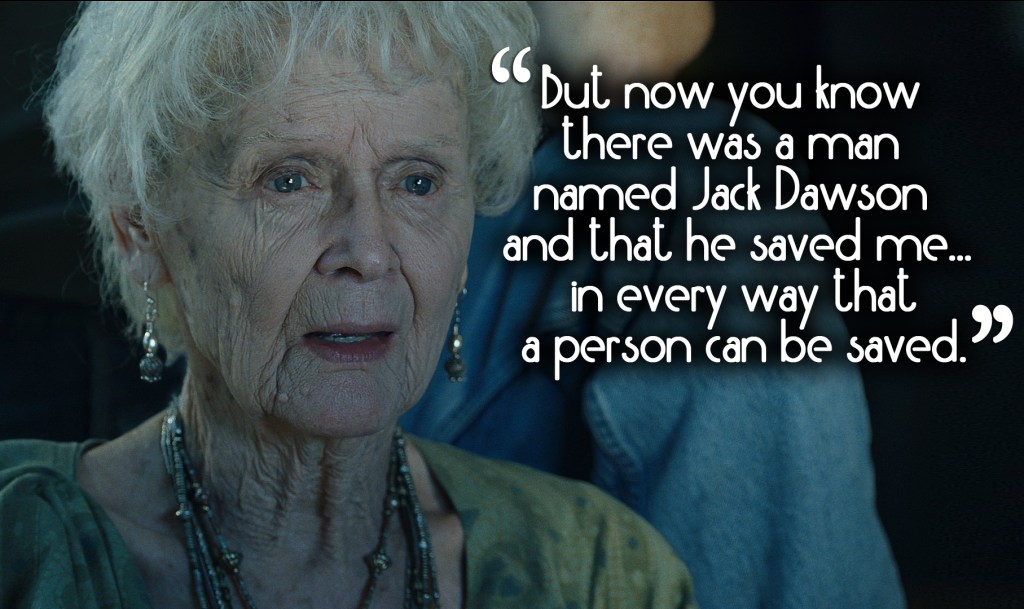Titanic Vocabulary & Resources: Word Search, Quotes & More
Can a single word encapsulate a story of such profound tragedy, audacious ambition, and enduring legacy? The word "Titanic" does precisely that, embodying the grandeur of an era, the hubris of its achievements, and the devastating consequences of its failures.
The word "Titanic," far more than a simple label, unlocks a treasure trove of narratives, emotions, and historical insights. It's a word that resonates with anyone familiar with the 1912 disaster in the North Atlantic, a word etched in the annals of maritime history, and one that continues to capture the imagination of the world. This word acts as a portal, inviting us to explore not just the ship itself, but also the social, technological, and human stories that converged in that fateful event. We will delve into the nuances of language, the significance of vocabulary, and the enduring power of stories, all centered around the singular, yet multifaceted word, "Titanic."
The genesis of the word "Titanic" lies in the ambitious vision of the White Star Line, the British shipping company behind the colossal vessel. The name, intended to evoke a sense of immense scale and power, was chosen deliberately. At the time of its construction, the Titanic was the largest ship in the world, a floating palace designed to transport passengers in unparalleled luxury across the Atlantic. The name, inspired by the Titans of Greek mythology beings of immense size and strength was a perfect reflection of the ship's gargantuan dimensions and the prevailing belief in its invincibility. The White Star Line, in their marketing material, aimed to capture the imagination of potential passengers by associating the ship with the awe-inspiring power of the gods. However, the irony, of course, is that this very association with unparalleled strength would eventually become a haunting reminder of human vulnerability in the face of nature's fury.
The word "Titanic" is often associated with the 1912 disaster, when the ship sank after colliding with an iceberg on its maiden voyage. This event, which claimed the lives of more than 1,500 people, instantly transformed the word into a symbol of tragedy and loss. The disaster exposed flaws in maritime safety regulations, highlighting the lack of lifeboats, inadequate training, and communication failures that contributed to the devastating loss of life. The legacy of the Titanic disaster continues to shape safety standards in the shipping industry to this day. The story of the Titanic and its demise, rapidly became a global sensation, captivating newspapers, and sparking public outrage. Survivor accounts, coupled with detailed reports, created a vivid picture of the ship's sinking, painting a clear picture of the chaos, bravery, and despair of the event.
Beyond its association with the disaster, the word "Titanic" also carries connotations of grandeur, innovation, and the spirit of a bygone era. The ship was a marvel of engineering, featuring luxurious accommodations, cutting-edge technology, and elaborate social spaces. The Titanic represented the pinnacle of the Edwardian era, a time of opulence, social stratification, and unbridled optimism. The passengers aboard the ship, ranging from wealthy industrialists and prominent figures to hopeful immigrants seeking a new life, embodied the diversity and ambitions of the period. The ship itself was a floating city, a microcosm of society that revealed both its virtues and its inequalities. It also showcased the rapid technological advancement of the age, with advancements in communication, such as the use of the Marconi wireless telegraph system, and in passenger amenities.
The word "Titanic" has found its way into popular culture, particularly through the iconic 1997 James Cameron film. The film, which became a global blockbuster, reignited public interest in the ship and its story. Through stunning visuals, romantic storytelling, and unforgettable characters, the film presented a vivid portrayal of the Titanic experience, captivating audiences worldwide. The films success further cemented the word's place in the public consciousness, making it a ubiquitous reference point for discussions about history, romance, and human drama. The popularity of the film has led to a resurgence of interest in the ship, inspiring countless books, documentaries, and museum exhibits. The films impact on the public's perception of the event should not be underestimated. It helped shape how future generations would remember and understand the disaster.
- Carrieanne Moss From The Matrix To Now Bio Facts
- Dodge 360 Magnum Engine Specs Performance 2024 Guide
The word "Titanic" also has a wider significance in language, serving as an adjective to describe anything of immense size, strength, or power. From "titanic struggles" to "titanic efforts," the word is often used to convey the scale and intensity of a situation or event. The use of the word in this way draws on its association with the ship, evoking a sense of overwhelming force and significant impact. The word can apply to numerous scenarios; from economic crises to the most significant sporting events. The use of the word in these situations provides the opportunity to convey the magnitude of the events being described. Thus, the word has not only become a historical marker, but also a versatile tool in the English language.
The word "Titanic" is a powerful reminder of the unpredictable nature of the world, the fragility of human endeavors, and the enduring power of memory. It encourages reflection on themes of ambition, hubris, and the human condition. It is a word that continues to resonate across generations, a testament to the enduring fascination with a ship, a disaster, and a story that continues to shape our world. The story of the Titanic reminds us of the importance of preparation, safety, and the value of human connection. It encourages us to question our assumptions, to acknowledge our limitations, and to learn from the lessons of the past.
Let's delve deeper into the vocabulary associated with the Titanic. The word "colossal," derived from the same root as "colossus," captures the immense size of the ship. The word "iceberg" itself is a stark reminder of the hidden dangers that lurked beneath the surface of the sea. Terms such as "lifeboat," "gargantuan," "unsinkable," and "maiden voyage" each carry their weight of meaning, shaping our understanding of the events and the context in which they occurred. We also find terms such as "passenger," "liner," "ocean," "blue," and "iceberg" which can be found in word searches, highlighting the various aspects of the voyage and the tragic event. These words are not merely descriptive; they are portals to stories and insights. In studying these words, we deepen our understanding of the event and the emotional impact it had on people.
Consider the emotional impact of the word "heartbreak." Its inclusion in quotes from the film captures the tragic element of the disaster. The use of a word like "struggle" highlights the conflict and the effort required. We also have the word "dreams," which is used with hope. The words help to convey the full scope of the disaster. The vocabulary associated with the Titanic spans from the technical to the emotional. It is through this range that we get the real experience of the disaster. The words used to describe the Titanic allow people to have a real emotional connection to the disaster.
Unscrambling the letters in the word "Titanic" opens up a creative exercise, inviting us to explore the possibilities within the word itself. Creating words from the letters of "Titanic" such as "ant," "tin," "cat," and "act" is a testament to the dynamic nature of language and the capacity for finding meaning in the seemingly simple. This method is a way of exploring the word. It can also be a way of learning about the events themselves.
Let's look at another aspect, the use of the words for entertainment. Word searches and quizzes are effective methods of engaging the public. The use of these resources allows a fun educational tool. The usage helps develop an understanding of the event in an enjoyable way. The words used in the quizzes allow people to engage with the disaster in an interactive way. This interactive format provides an effective medium for communicating and learning about the subject.
The use of quotes, from the Titanic film and other resources, gives another layer of engagement. The use of these quotes allows us to look at the themes. In turn, this allows us to understand the emotional toll the disaster had on people. The quotes provide emotional depth and bring the story to life. The use of such quotes allows us to connect with the story in a personal way. This allows us to recognize the impact of the disaster on a personal level. These quotes serve as a vehicle for telling the story and they make it far more engaging. The emotional depth allows us to form a closer connection with the topic.
The term "maiden voyage" is another example of an interesting phrase. This phrase helps describe the first journey of the Titanic. The phrase is used in many ways, but the underlying message is clear. This phrase highlights the significance of the ship's inaugural voyage. It is important in describing the ship. It helps to explain the ship's significance in history. The maiden voyage phrase conveys both the ship's importance and the ship's fate. The meaning of the phrase adds meaning and depth to the events.
The search for knowledge continues with online resources, such as official lists, provide information and insights. This helps researchers and enthusiasts to gather more information. The internet offers vast amounts of data, providing opportunities for learning. The official resources are reliable and provide accuracy. These resources provide a factual base for study. This is essential for accurately exploring the subject.
The use of the word "colossal" also allows us to recognize the ship's scale. The ship's immense size set a precedent for future ships. This is one aspect of the innovation involved in the construction. It conveys the significance of the ship's size. This helps in our understanding of the ship. The ships enormous size made it memorable. It represents the pinnacle of engineering at the time. The word is the perfect way to describe the Titanic.
The word "struggle" is another way to view the disaster. The ship's demise was a struggle. It was a struggle for survival, and the fight for life. The word conveys the drama and the intensity of the event. The disaster itself was a struggle against fate. The word offers a glimpse into the human story. The word provides context to the individual actions taken.
The word "iceberg" serves as a symbol. It represents the unexpected dangers and the perils of nature. This word is at the center of the tragedy and the word underscores the unpredictability of the sea. It is symbolic of the dangers. The word, in its simplicity, captures the tragedy. This word is key to the story. The iceberg is an iconic image.
The word "unscramble" helps us to understand the use of language. This exercise opens the doors to creative exploration. This helps to reveal the hidden potential of language. The exercise is creative and helps you find the depth of the event. The exploration helps us to connect with the ship. This is an entertaining way to learn.
The word "movies" shows the media's role. The movie's popularity shows the enduring legacy of the ship. The film helps keep the memory alive. The movie acts as a portal for education. The movie makes the events accessible for the public.
The word "quotes" also plays a role. These allow us to study human emotion. The quotes help give us context and provide a human element. The quotes add a personal dimension to the story. These quotes can inspire and inform.
The phrase "word search" offers an engaging way to learn. It's a fun and educational activity. This is a hands-on approach and a great way to learn. The word search brings the story to life.
In conclusion, the word "Titanic" is more than just a name; it is a complex web of history, emotion, and cultural significance. It acts as a doorway into a world of tragedy, innovation, and human resilience. It serves as a reminder of both the triumphs and the failures of humanity. The word, with its many layers, continues to invite us to explore the story of the ship, the disaster, and the enduring legacy of the Titanic.
- 77 Meters To Feet More Conversions Info Learn Now
- Cold As A Well Diggers Ass Meaning Origins Explained

10 Inspirational 'Titanic' Quotes That Will Help You Go on and On

Titanic Movie Quotes Inspirational and Immortal Lines From the Film

Titanic Movie Quotes Inspirational and Immortal Lines From the Film